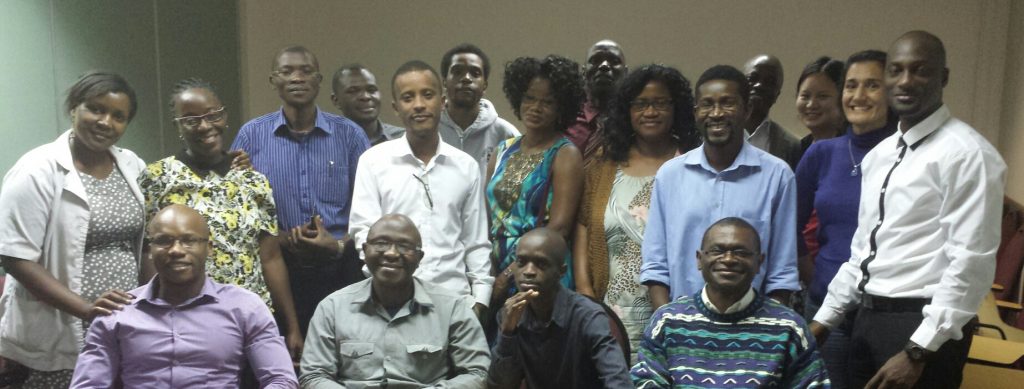
Researchers at UNC Project-Malawi published 124 articles in scientific journals in 2018, setting a record for UNC Institute for Global Health’s global sites. Twenty-six of the manuscripts featured Malawian first authors.
“Our unit celebrates every publication manuscript coming from UNC Project-Malawi, especially those featuring a Malawian first author,” says Maga Chagomerana, PhD, the project’s director of analysis and manuscripts unit. “We always strive to build local, analytic and scientific writing capacity, and the growing number of Malawian first author publication manuscripts is a motivation.”
Download list of the 2018 publications
More than 25 years ago, faculty from UNC-Chapel Hill were invited by the Malawian government to help the country develop treatment protocols for sexually-transmitted infections. In partnership with the Malawi Ministry of Health, the University established UNC Project−Malawi in 1999 as a research, care and training program in the capital city of Lilongwe.
“UNC’s goal in Malawi has always been to fully engage Malawian health professionals in an academic model that focuses not only on research to address the pressing health problems of the time, but on career development and academic empowerment,” says Irving Hoffman, PA, MPH, the Institute’s international operations director and U.S.l director of UNC Project-Malawi. “This is true for both UNC and Malawian students and faculty, based both in the U.S. and in Malawi. The publication list this year is a testament from all involved that we are succeeding.”
Like much of sub-Saharan Africa, Malawi faces significant health care-related challenges. Average life expectancy for the population of more than 19 million is 63 years, compared to 79 years in the U.S. Malawi has a high burden of HIV, malaria, tuberculosis, and other infectious diseases straining the country’s limited healthcare infrastructure. Yet research conducted at UNC Project-Malawi has led to improved clinical care locally and globally. The World Health Organization changed its treatment guidelines for HIV and cryptococcal meningitis based on study results from the Malawi site.
UNC Project-Malawi has also worked hard to have UNC-trained physicians relocate to Malawi to train local clinicians and researchers. “My first mentees are now leading their own research teams and mentoring students with the same zeal and enthusiasm as me,” says Mina Hosseinipour, MD, MPH, scientific director of UNC Project-Malawi. She relocated to Malawi from the United States in August 2001. “I’m especially thrilled to see the growth of our Malawian faculty and junior investigators in the scientific process and their academic outputs.”
